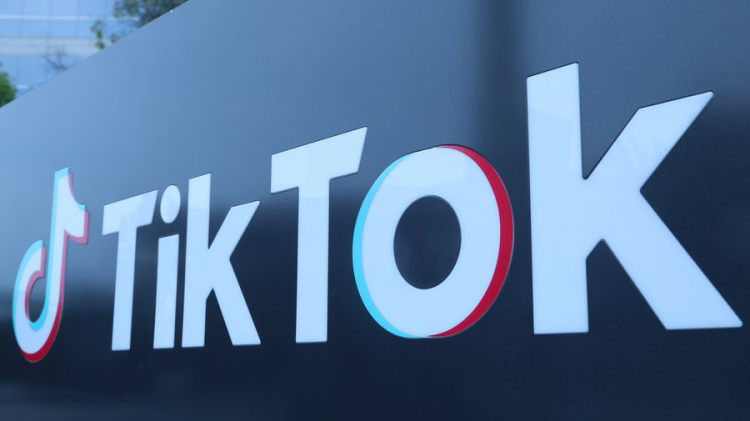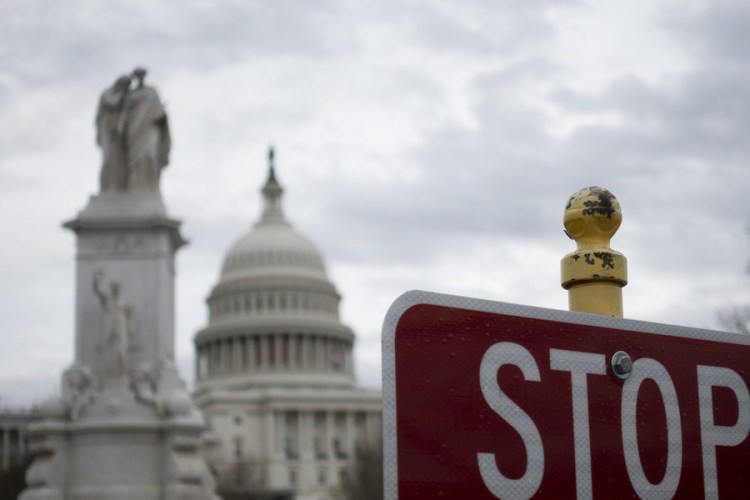
A logo of TikTok's Los Angeles Office in Culver City, Los Angeles County, the United States, August 21, 2020. /Xinhua
A logo of TikTok's Los Angeles Office in Culver City, Los Angeles County, the United States, August 21, 2020. /Xinhua
Editor's note: Bradley Blankenship is a Prague-based American journalist, political analyst and freelance reporter. The article reflects the author's opinions, and not necessarily the views of CGTN.
On March 7, a bipartisan group of U.S. senators led by Senator Mark Warner of the Democratic Party and John Thune of the Republican Party introduced a rare bipartisan legislation dubbed the Restricting the Emergence of Security Threats that Risk Information and Communications Technology (RESTRICT) Act. This was quickly met with approval from the White House and U.S. President Joe Biden, who urged Congress to swiftly pass the bill for his signature and codification into law.
The bill would empower the Department of Commerce to review deals, software updates or data transfers by information and communication technology where a foreign adversary has a stake. The bill defines a foreign adversary as one of six countries: China, Russia, Iran, the Democratic People's Republic of Korea, Venezuela and Cuba. It could also apply to companies with at least one million U.S.-based annual active users or those that have sold one million copies to U.S. customers in an annual period.
And while the bill is said not to single out any particular company, media outlets in the United States have noted that the legislation would effectively give the President the power to ban apps like TikTok, which Chinese firm ByteDance owns.
In a press release, Senator Warner even named TikTok by name. He said, "Today, the threat that everyone is talking about is TikTok, and how it could enable surveillance by the Communist Party of China, or facilitate the spread of malign influence campaigns in the U.S. Before TikTok, however, it was Huawei and ZTE, which threatened our nation's telecommunications networks. And before that, it was Russia's Kaspersky Lab, which threatened the security of government and corporate devices."
Warner said that his country needs "a comprehensive, risk-based approach that proactively tackles sources of potentially dangerous technology before they gain a foothold in America, so we aren't playing Whac-a-Mole and scrambling to catch up once they're already ubiquitous." So, in turn, the legislation would not only give the federal government the power to ban TikTok but to preemptively ban the next emerging foreign app before it actually enters the U.S. in the first place.
In terms of the politics of this bill, there is some consideration for the House of Representatives. For its part, the House has already passed its own version called the DATA Act, which had no co-signers from the Democratic Party and made it through committee on party lines. So, it is not a done deal yet that the legislation will ever make it to Biden's desk for approval anyway.

The Capitol and a stop sign are seen in Washington D.C., the United States, February 13, 2020. /Xinhua
The Capitol and a stop sign are seen in Washington D.C., the United States, February 13, 2020. /Xinhua
Still, the bill's introduction seems to have triggered a chain reaction in Western-aligned countries over TikTok. For example, on March 8, just the following day, the Czech Republic's National Cyber and Security Information Agency listed TikTok as a security threat because of the amount of data it collected, the legal environment in China and the growing number of users in the country. That is as obvious a cue from Washington as any.
But any country that implements this kind of legislation, whether it be in Washington or Prague, is doing itself a disservice. As one of the top-visited websites worldwide, TikTok is a ubiquitous platform for culture. To deny users access to it would be to essentially halt one's own cultural exports, in a sense. At the same time, it sends a bad message at the same time that Western companies are essentially lifting features from the Chinese app in an effort to stay competitive.
More specifically for Washington, allegations of alleged spying or data misuse are profoundly ignorant. Through the Edward Snowden Leak, it was revealed to the world that the U.S. itself owns and operates the largest bulk data collection and spying apparatus in world history – and it continues to do so with impunity. To throw allegations against China or its companies is the pinnacle of hypocrisy.
Relevant officials at TikTok have already promised to do more than enough to ensure the transparency of its U.S. operation, including operating through the so-called Project Texas and allowing the U.S. company Oracle to host data in its cloud network with rigorous procedures over data handling and usage. This is far more comprehensive than existing U.S. laws, which are essentially nil compared to data regulations in even the EU or China.
However, no one should be naive enough to believe that the issue is really about U.S. teens dancing on a popular Chinese-developed app. The issue is really about competition.
As always, the U.S. wants to kneecap China because it can't stand on its own two legs in a competitive market. That's what the RESTRICT Act is really about. The saying usually goes that if you can't beat them, join them. But Washington clearly has a different style.
(If you want to contribute and have specific expertise, please contact us at opinions@cgtn.com. Follow @thouse_opinions on Twitter to discover the latest commentaries in the CGTN Opinion Section.)